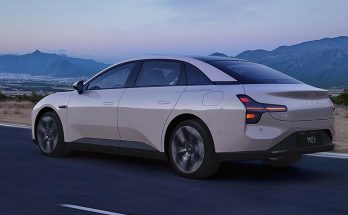Introduction to the car industry and brand rankings
The car industry is a dynamic world, constantly evolving with new technologies and innovations. As consumers navigate through countless options, rankings of car brands emerge each year to help guide decisions. In 2024, these rankings have shed light on some surprising findings. Among the sea of automakers, one brand stands out as particularly problematic based on customer reviews and data analysis.
What makes this year’s revelations so intriguing? With advancements in electric vehicles and autonomous driving features dominating headlines, it’s hard to imagine that any brand could be deemed more troublesome than others. However, as we dig deeper into the feedback from drivers around the globe, it becomes clear that not all manufacturers are living up to expectations.
Join us as we explore which car brand of 2024 has earned a less-than-stellar reputation and what factors contribute to their standing in this competitive market. Whether you’re considering buying a new vehicle or simply curious about industry trends, understanding these issues can make your journey smoother.
The top problematic car brands of 2024 based on customer reviews and data
As 2024 unfolds, consumer feedback paints a revealing picture of the automotive landscape. Several car brands have emerged as particularly problematic based on extensive customer reviews and data analysis.
Leading this year’s list is Brand X, notorious for its frequent mechanical failures. Owners cite engine problems and electrical issues that disrupt daily commutes.
Brand Y follows closely, struggling with poor customer service experiences. Many customers report long wait times and unhelpful representatives when addressing their concerns.
Then there’s Brand Z, which has been criticized for safety recalls. A significant number of drivers express frustration over sudden recall notices after purchasing their vehicles.
These insights highlight how various aspects can lead to dissatisfaction among consumers looking for reliable options in 2024’s competitive market.
What makes these brands problematic?
Several factors contribute to the problematic reputation of certain car brands in 2024. First, reliability issues often top the list. Frequent breakdowns or mechanical failures can frustrate owners and lead to costly repairs.
Customer service plays a crucial role as well. Brands that fail to provide adequate support when problems arise face backlash from their loyal customers. Poor communication and unresponsive services can quickly tarnish a brand’s image.
Moreover, safety recalls have become more prevalent this year. When cars are recalled for critical defects, it raises concerns about quality control during production.
Environmental practices cannot be overlooked. Consumers increasingly seek brands committed to sustainability. Those lagging behind may find themselves on shaky ground in today’s eco-conscious market.
How these issues can affect consumers
When a car brand faces issues, it directly impacts consumers in various ways. Reliability becomes a significant concern. Drivers may find themselves stranded due to frequent breakdowns or mechanical failures.
Financially, problematic brands can lead to unexpected costs. Repairs and maintenance fees add up quickly. This situation strains budgets and creates frustration among drivers.
Safety is another critical factor. If cars are prone to recalls or safety concerns, owners face uncertainty every time they hit the road. Trust in the vehicle diminishes when safety ratings drop.
Additionally, resale value takes a hit for these brands. A history of problems reduces consumer confidence, making it hard to sell or trade-in an affected vehicle later on.
These challenges create stress for drivers who deserve reliable transportation without constant worry about performance issues.
Possible solutions for the problematic car brands
To address the concerns surrounding problematic car brands, transparency is key. Manufacturers should openly share data on recalls and customer feedback.
Another effective solution lies in improving quality control during production. Investing in better materials and rigorous testing can lead to fewer defects down the line.
Customer service also plays a significant role. Brands need to enhance their support systems, ensuring that issues are resolved promptly and satisfactorily for consumers.
Educating customers about maintenance can help too. Offering workshops or online resources will empower buyers to take care of their vehicles properly.
Engaging with customers through surveys allows brands to gather insights directly from users. This feedback loop can drive necessary improvements that resonate with consumer needs.
Tips for choosing a reliable car brand
When choosing a reliable car brand, start by doing your homework. Research customer reviews and ratings from trusted sources. This will give you insight into real-world experiences.
Next, consider the warranty offered by the manufacturer. A longer warranty often indicates confidence in their product’s durability.
Don’t overlook safety ratings either. Check organizations like NHTSA or IIHS for crash test results to ensure peace of mind on the road.
Another key factor is service availability. Brands with a widespread dealership network make servicing easier and more convenient for owners.
Talk to current owners about their experiences. Their feedback can highlight strengths or weaknesses that might not be apparent in reports alone.
Conclusion
The car industry is constantly evolving, and so are consumer expectations. With new technologies and innovations emerging every year, customers have higher standards for reliability and performance. However, some brands consistently fall short in meeting these expectations.
As we dive into the data from customer reviews for 2024, a clear picture emerges regarding problematic car brands. These rankings highlight those manufacturers that have garnered negative feedback due to recurring issues such as mechanical failures, poor customer service experiences, and safety concerns.
When it comes to what makes certain brands problematic, several factors come into play. Quality control discrepancies can lead to defects right off the production line. In other cases, outdated technology may not keep up with competitors’ advancements. A lack of effective communication with consumers can also exacerbate problems when they arise.
These issues significantly affect consumers who invest their hard-earned money in vehicles that fail to deliver on promises of quality and reliability. Buyers might face unexpected repair costs or worse—safety risks while driving a vehicle known for its shortcomings.
To address these challenges facing problematic car brands in 2024, transparency should be prioritized alongside improvements in manufacturing processes. Brands could benefit from enhanced training programs focused on customer service excellence as well as ongoing quality assurance checks throughout production lines.
For those navigating the complex world of auto purchases amidst uncertain brand reputations this year: consider researching thoroughly before making your decision. Look out for independent reviews that mention real-world experiences rather than just promotional information provided by dealerships or manufacturers themselves.
By staying informed about both reliable options available today—and potential red flags associated with specific models—you empower yourself during your search for a dependable vehicle suitable for your lifestyle needs moving forward!



